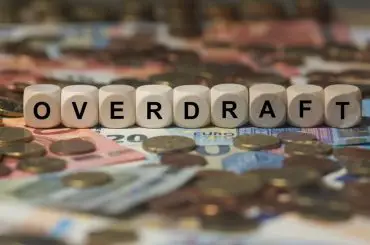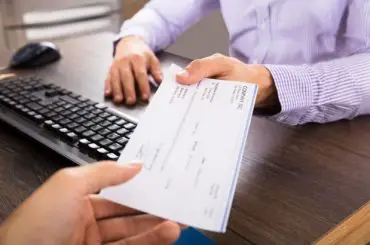Information presented on this web page is intended for informational and educational purposes only and is not meant to be taken as legal, financial, investment or tax advice. We do not accept any responsibility for any trading or investment related losses. Please review our disclaimer on before taking action based upon anything you read or see.
What happens if my bank account is negative for too long? Many bank customers usually ask this question today. Thus, below is a highlight of all you need to know. Even if you monitor your account balance online frequently, unexpected events occur.
You may make a mistake and let your account go negative, which may be costly and upsetting. A bank account with a negative balance is certainly not a good thing. Your bank balance is $500 in one minute, and it’s minus $500 the next minute.
Maintain a good attitude rather than panicking at this point. It’s critical to act swiftly, too, to avoid any possible economic harm. Even better, you can take steps to avoid a negative balance and bank fees in the first place.
What does it mean to have a Negative Bank Account?

You have a negative bank account if the balance in your account is in the negative range. In other words, your bank account balance has dipped below $0. An overdraft is another term for a negative balance.
Why is my Account in the Negative Range?

A negative bank account can occur for a variety of reasons. You may lose track of the amount of money in an account, leading you to believe you have a larger accessible balance than you do.
Alternatively, you might lodge a check and immediately make a payment before the money is available in your bank.
Mistakes and errors can occur, and you may forget about a previously planned payment or a purchase made in the month. You might mistakenly believe that a withdrawal will take a few days to process and that a deposit will clear in the interim. If you make an omission when writing a check, you may withdraw too much money too.
In case, you’ve got multiple accounts with the same bank, you may end up with an overdraft due to uncertainty over which account you’re using. If you overspend one account, even if you have more than sufficient funds in another account to fulfill the payment, your balance on that account will become negative.
The only way out is if you have made prior arrangements with the bank to move funds between your accounts in such cases.
Furthermore, signing a check isn’t the only method to get into trouble with an overdraft. An ATM activity, electronic payments (including automated or periodic payments), withdrawing money at a local bank, or using a bank card, among other things, can result in a negative balance.
What Happens If My Bank Account is Negative for Too Long?
/istock_000000246160_medium.checkbook.cropped-5bfc300846e0fb00265cbe35.jpg)
If you keep your bank account in the negative for too long, the following issues can pop up:
Diverse charges
Your bank can charge you for every overdraft if you write a check or make certain types of electronic payments that cause your account to go negative. If you accept your bank’s overdraft protection, the bank may charge you a fee for each ATM transaction or direct debit transaction that results in a negative account balance.
In case, this goes on for an extended period, you may be required to pay hefty overdraft costs. If you don’t rectify the negative balance quickly, you may owe further money.
Issues with account closure
If you decide to terminate your bank account after it has been in the negative for too long, the bank may refuse and require you to settle the sum first. On the other hand, negative accounts aren’t kept open continuously by banks. If you repeatedly overdraw an account or leave it in the negative for an extended time, your bank will most likely close it.
The bank can then alert a checking account auditing firm, which can preserve the information for up to seven years on a record of your banking history.
Debt collection and credit impact
When you apply for another savings account, banks look at your history. If they notice an involuntary closure on your bank account history, they may refuse to create a new account.
Alternatively, they may allow you to start a second chance account with significant fees and limits. For example, you can be limited to depositing just specific types of checks, such as cashier’s checks, or you might have a daily withdrawal restriction.
The bank can close your account after too many overdrafts, and the next day you wake up to a letter from the collection agency. The banks are always watching for signs that someone might be going into debt – even if they’re just making excuses about why their bills aren’t getting paid on time or how much money is needed right away before things get worse!
They may report your outstanding balance to credit bureaus, lowering your credit scores and making it harder to obtain credit in the future.
Tips for Dealing with a Negative Bank Account

You can take precautions to avoid having a negative balance in your bank account. Some options have both positive and negative aspects. These include:
Turn off your overdraft protection.
You could, for starters, refuse to subscribe to overdraft costs. Banks can’t charge you for an overdraft on ATM withdrawals or most debit card payments if you don’t agree to overdraft coverage.
Still, they will likely charge you for insufficient money if you attempt to overdraw the account by check.
Most debit card activities that would overdraw your account won’t be accepted if you don’t agree to your bank’s overdraft fees, and your account will stay in the black too.
However, there are drawbacks. If you don’t affect your payments on time, your creditors may charge you fees. They may also report missed payments to credit bureaus, lowering your credit scores.
Link a savings or credit card account.
Overdraft protection programs offered by your bank may be able to help you prevent negative balances. For example, you can link a regular account to your checking account so that the bank can cover overdrafts by taking money from your savings.
Each transfer from the linked account may incur a fee, but it is likely to be less than the fee for an overdraft.
Because the bank may not notify you of such transfers, it’s a good idea to keep a tight eye on both your checking and savings accounts to ensure you don’t spend too much of your money. This service is only useful if you have sufficient funds in your savings account to cover the payment.
To cover payments that might overdraw your account, your bank may allow you to attach a credit card to your checking account or borrow from a line of credit.
You’ll be charged interest on the amount you borrow, as well as a fee each time you use your credit line. However, you can save money in this manner if your account does not go into negative territory for too long.
Set up account balance alerts and the direct deposit automatically.
You can set up account notifications so that your bank sends you a message if your balance falls under a certain threshold. When you’re low on cash, alerts might warn you to deposit more money in your account before you overdraw it or to cease making payments from the account.
If you have a negative balance, you should consider enrolling in direct deposits because you don’t make deposits frequently enough. This service automatically puts your paycheck into the account of your choice, and the funds are usually accessible the next business day after you make the deposit.
Frequently Asked Questions
How long can you keep your bank account in the negative?
Banks often close overdrawn accounts after 60 days, whereas credit unions close them after only 45 days. The bank closes your account and sends your account details to the collections department after charging it off.
What happens if my bank account is negative for too long?
Failure to keep a positive account for too long may result in various undesirable effects. The bank may close your account, pursue collection or other legal action against you, and even disclose your failure to pay, making future checking account opening more difficult.
Is it possible to get a jail term for having a negative checking account?
No. Overdrawing your bank account will not land you in jail. If you overdraw your bank account excessively and fail to settle your payments, the bank, as your creditor, can report you to the credit bureaus, cancel your account, and negatively impact your credit score.
Is it possible to withdraw money if your account balance is negative?
Yes. It is possible to withdraw funds over the account balance, but consequences, bank restrictions, and fees to consider. Overdrafts are defined as withdrawals that exceed available money and are subject to fines.
Is it possible to acquire a loan if my account is negative?
Yes. Even if your bank account is negative, you can still acquire a rapid loan without a credit check. One of the major reasons why payday loans are popular, despite their high-interest rates, is that you may acquire cash right away, even if you have a bad credit score or a negative account.
Conclusion
In conclusion, keeping your bank account in a negative state for too long usually comes with diverse demerits. And if you desire help in this regard, the tips above will aid you immensely.




